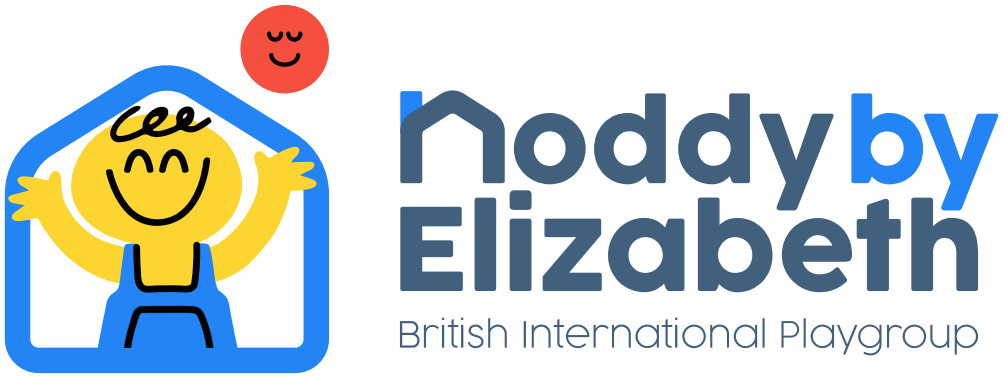
Parents put the utmost importance on their children’s education, especially at the nursery stage, where a child’s brain development is happening at a rapid pace. A child’s development from birth to five years can have a significant impact on their future. It’s also during the pre-school years when a large part of their personality is formed. That’s why a curriculum that focuses on character development is just as important as one that is based on academic performance, as this can have wide-ranging impacts on a child’s development in his later years.
That’s why at our nursery in Bangkok, Sathorn, we teach using the British EYFS curriculum. The EYFS curriculum promotes teaching and learning to guarantee children’s ‘school readiness’ and help them develop a broad range of knowledge that will form a good foundation for their future progress in school and life.
The EYFS curriculum focuses on the following:
- Quality and consistency – In the early years, it seeks to provide every child with an equal opportunity to make good progress without being left behind.
- A secure foundation – By planning the learning and development of each individual child while assessing and reviewing what they have learned regularly.
- Partnership – A firm commitment from all stakeholders, and between teachers and parents.
- Equality of opportunity – Discouraging discriminatory practices and ensuring every child is included and supported.
The following early learning goals of the EYFS programme will gradually be developed as children grow. (Each child is unique. Let them learn and progress naturally. Don’t put pressure on them as it might discourage their learning.).
Communication and Language
Children should be able to communicate effectively with their peers and respond confidently to follow-up questions when being read to, and during discussions with the whole class. They should also be able to hold a conversation when engaged by their teacher and peers. Children should also be able to participate in group discussions while offering their own ideas and using vocabulary recently taught to them. They should also be able to express thoughts and explanations and make use of non-fiction, poems, and rhymes where appropriate. On top of that, they should also be able to express themselves competently with past, present, and future tenses with some support from their teacher.
Personal, Social, and Emotional Development

The British EYFS curriculum teaches children to manage themselves and their emotions and begin to understand the feelings of others around them. They should be able to set and work towards simple goals for themselves and be able to wait for what they want and control their immediate impulses. They are also able to give focused attention to what their teacher says and respond accordingly and be able to follow instructions involving several actions.
As part of their relationship-building skills, children will learn to work and play cooperatively and take turns with others, plus form positive relationships and attachments with adults and peers. Another important skill to hone is showing sensitivity to their own needs as well as that of others.
Physical Development
Children are able to negotiate spaces and obstacles safely and with consideration for themselves and others. They are able to demonstrate strength, balance, and coordination when playing with others. Moving energetically and without hindrance. For example, when running, jumping, skipping, dancing, or climbing.
They should also possess fine motor skills like grasping a pencil effectively with a tripod grasp in most cases and have no difficulty using a range of small tools, including scissors, brushes, and cutlery. Children should also be able to demonstrate fine accuracy in drawing.
Literacy
The children will need to demonstrate an understanding of what has been read to them by retelling stories and narratives using their own words recently learned in class. Adding to that, they should be able to predict key events in stories and demonstrate the ability to use recently introduced vocabulary in discussions and stories.
When reading, they should say the sound of each letter in the alphabet clearly and read words with consistent phonic knowledge without sound blending. Sentences should be read with consistent phonic knowledge, including some common exception words.
Mathematics
Children should have a deep understanding of numbers up to 10, this includes the composition of each number. They should also be able to subtract and automatically recall number bonds up to 5 and some number bonds up to 10 without the aid of rhymes or counting.
The children should possess the ability to count beyond 20 and recognise the pattern of the counting system. Comparing quantities of up to 10 in different contexts and when one quantity is greater than another. Explore and represent patterns within numbers up to 10 and including even and odd numbers, and how quantities can be distributed equally.
Going beyond the EYFS Curriculum
Noddy goes a step further in introducing extracurricular activities that reinforce the goals of the EYFS programme. While they are not mandatory, parents are encouraged to allow their children to participate in order to give them additional opportunities to develop their social skills. Our extracurricular activities include football, eurhythmics, choir, dance, drama, arts and crafts, yoga, Thai language and teamwork.
Noddy by Elizabeth was established 44 years ago by Mrs. Elizabeth in 1978. We have decades of experience shaping the growth and development of young children. Call Noddy by Elizabeth to arrange a tour of the grounds and facilities to gain a better understanding of the school and the curriculum we teach.
